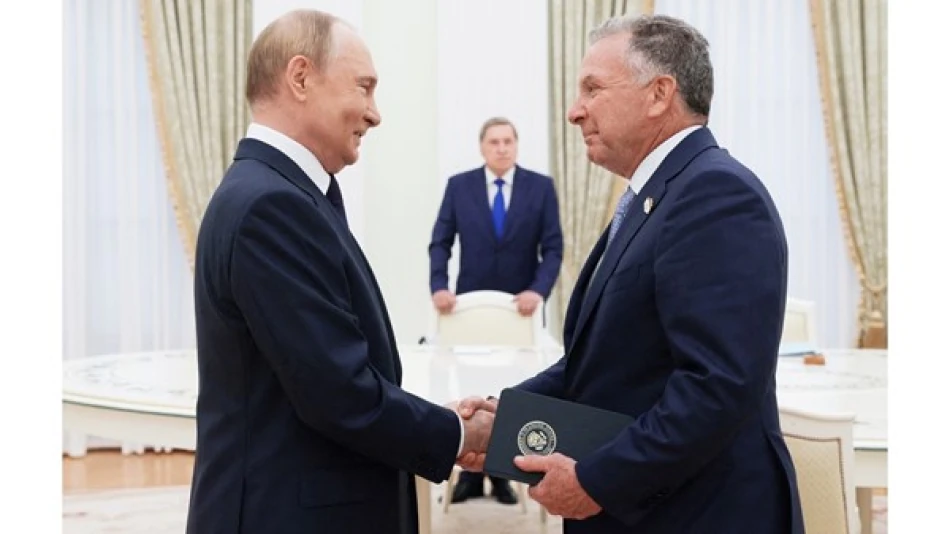
Russian President Putin Holds Talks with Kremlin's Vitkov
Putin and Trump Envoy Hold Marathon Three-Hour Kremlin Meeting as Diplomatic Reset Begins
Russian President Vladimir Putin met with Steve Witkoff, Donald Trump's special envoy, for an extended three-hour session at the Kremlin today, marking the first high-level diplomatic engagement between Moscow and the incoming U.S. administration. The lengthy duration and positive characterizations from Russian officials suggest both sides are exploring substantive policy shifts that could reshape the geopolitical landscape.
A Signal of Serious Intent
The meeting's three-hour duration stands in stark contrast to the brief, often tense diplomatic encounters that characterized U.S.-Russia relations during the Biden administration. Yuri Ushakov, Putin's presidential aide who attended the session, described the talks as "useful and constructive" – diplomatic language that typically indicates genuine progress rather than mere protocol.
Witkoff's role as Trump's special envoy gives him direct access to the president-elect, making this meeting a clear signal that both Moscow and the incoming Trump administration are prioritizing a potential reset in bilateral relations.
Economic Dimensions Take Center Stage
The presence of Kirill Dmitriev, Putin's special representative for investment and economic cooperation who heads Russia's Direct Investment Fund, suggests economic considerations played a significant role in discussions. Dmitriev's brief but pointed statement that "dialogue will prevail" indicates optimism about future cooperation despite ongoing sanctions regimes.
Investment Implications
For investors and markets, this meeting represents the first concrete step toward potential sanctions relief or modification. Russia's Direct Investment Fund, under Dmitriev's leadership, has been seeking Western partnerships despite current restrictions. Any thaw in U.S.-Russia relations could unlock significant opportunities in energy, technology, and infrastructure sectors.
Historical Context and Precedent
This diplomatic outreach mirrors Trump's first-term approach to Russia, when he consistently advocated for improved relations despite domestic political pressure. However, the current context is markedly different – Russia's international isolation following its actions in Ukraine has been far more comprehensive than previous sanction regimes.
The timing also recalls previous U.S.-Russia reset attempts, including the Obama administration's early efforts in 2009 and Reagan's engagement with Gorbachev in the 1980s. Each reset occurred during periods of significant global tension, suggesting both powers recognize the need for dialogue channels.
Strategic Calculations
Putin's decision to personally conduct this lengthy meeting, rather than delegating to Foreign Minister Lavrov, indicates Moscow views Trump's return as a potential strategic opportunity. For Russia, improved U.S. relations could provide economic relief and reduce diplomatic isolation.
From Trump's perspective, the engagement aligns with his stated preference for direct leader-to-leader diplomacy and his campaign promises to end conflicts through negotiation rather than prolonged confrontation.
What This Means Moving Forward
The positive tone and extended duration suggest this was more than a courtesy call. Both sides appear to be laying groundwork for potential policy shifts that could affect everything from sanctions regimes to regional security arrangements. The involvement of economic officials particularly signals that trade and investment cooperation may be early areas for potential agreement.
However, any substantial changes will face significant constraints from Congress, European allies, and domestic political considerations in both countries. The real test will be whether this initial diplomatic opening can translate into concrete policy modifications that address the fundamental issues driving U.S.-Russia tensions.
Most Viewed News

 Layla Al Mansoori
Layla Al Mansoori






